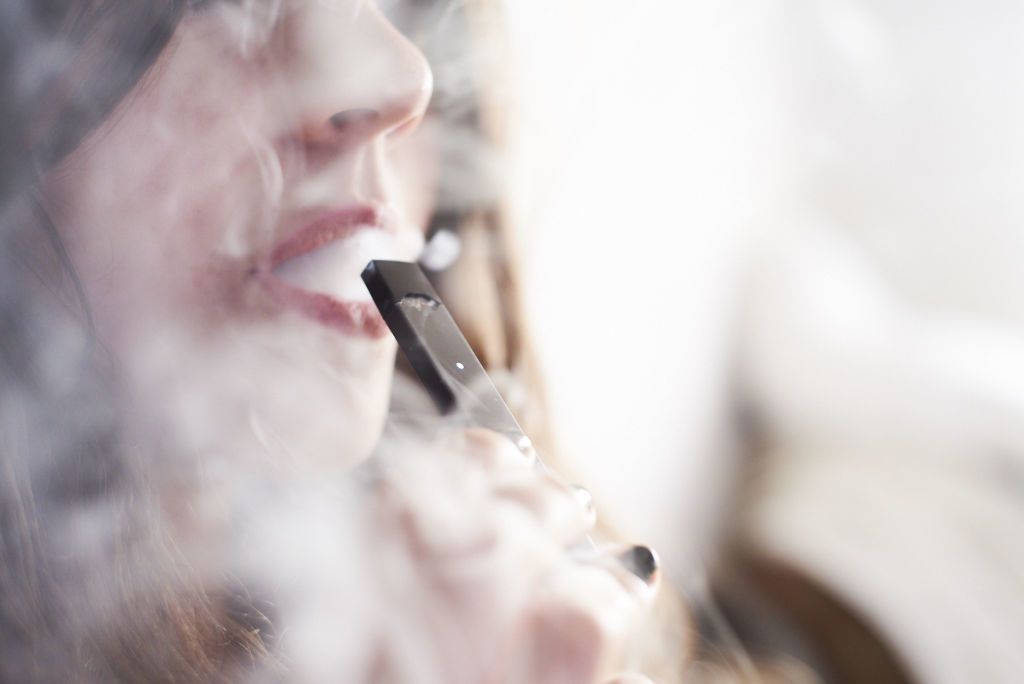(Bloomberg) — Brand-loyal vapers are flocking to their favorite shops to stock up on Juul Labs Inc.’s e-cigarettes, amid news that the products will be taken off the market.
“My husband is out on a Juul run right now. Gonna clear the shelves and hoard ’em like our incandescent bulbs!” one user wrote on Twitter following the news, first reported on Wednesday by the Wall Street Journal, that the US Food and Drug Administration could order the company to stop selling its e-cigarettes. On Thursday, the FDA denied authorization to Juul for all of its products currently marketed in the US, requiring the company to stop selling and distributing them and to remove those that are on the market.
It’s the latest hit for Juul after the FDA banned sales of customer-favorite fruity and sweet flavors on concerns the products were being marketed to minors. But the company isn’t being singled out — the FDA has generally tightened its oversight of e-cigarette companies and is reviewing thousands of applications from companies aiming to sell similar products.
Juul “just so happened to rise to the top of the stack,” said Lynn Kozlowski, a public health professor at the University of Buffalo who has led studies on nicotine addiction, vaping and cigarettes.
Back in 2019, reports began to emerge of cases of severe lung damage in young people that were later linked to vaping or e-cigarette use. As of February 2020, the US Centers for Disease Control and Prevention recorded more than 2,800 such cases that resulted in hospitalizations and deaths. Studies revealed an association with vitamin E acetate, an additive in some THC-containing vaping products, and cases declined amid increased public awareness and efforts to better regulate the products’ safety.
People vape for a different reasons: some to kick cigarettes, other use the products socially. When flavors like mango, fruit and creme were taken off shelves in 2019, some customers turned to other products that had more of a “reward” component — better flavors, perhaps even a higher nicotine content, Kozlowski said.
Will Teasley, 20, a college senior at North Carolina A&T State University is happy the FDA is pulling Juul off the shelves, but thinks it will do little to discourage young people from vaping because there are so many other products available. Teasley first got hooked on vaping in high school — with Juul — and for the last five years he said its been nearly impossible to quit.
“Juul is the device that opens the door to cause lifelong addiction,” Teasley said. But for him, the FDA’s move comes too late: “It already got me.”
Brands like Puff Bar, VaporLax and Hyde sell more flavors and offer disposable options that consumers say makes them easier to use than a Juul, which needs to be refilled and charged. Plus, Juuls tend to be more expensive than competitors. The liquid inside Juul pods is eight times more expensive per milliliter than comparable e-liquid sold in a bottle, according to e-cigarette website vaping.com.
“You might have some people who buy up Juul and hoard it, but others will just switch to products that are still legal,” Kozlowski said. “It’s a very diverse market.”
Read More: Juul Finds Hell Hath No Fury Like an Army of Really Rich Parents
Still, some shops are readying for a potential influx of customers hoping to stock up. By mid-morning Wednesday, the Smoke Shop in Manhattan’s Kips Bay neighborhood said they were putting all their Juul supply out on shelves in preparation.
More problems could arise for vapers if the FDA continues cracking down on vaping products, Kozlowski said. The Biden administration is showing more interest in the subject, preparing to require tobacco companies to cut nicotine levels in cigarettes to reduce smoking-related deaths. When that comes to pass, it may be safer to have an abundance of consumer-acceptable, less-harmful options available, Kozlowski said.
“I’m worried about what this suggests for the impact of a low-nicotine cigarette policy,” he said. “We don’t know what types of patterns might develop; it’s a risk to consumers.”
(Adds FDA action in first and second paragraphs.)
More stories like this are available on bloomberg.com
©2022 Bloomberg L.P.











